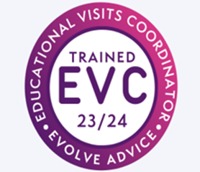Times Education Commission: Bringing out the best
The Times Education Commission was set up in June 2021, at the suggestion of Sir Anthony Seldon. Its aim was to examine Britain’s whole education system and consider its future in the light of the Covid-19 crisis, declining social mobility, new technology and the changing nature of work.
The project was chaired by the Times columnist Rachel Sylvester supported by a distinguished team of 22 commissioners with successful backgrounds in business, education, science, the arts and government.
It is hoped that the commission and publication of this report is a catalyst for change… The commission is one of the broadest inquiries into education ever held in Britain and the first to look at the system from early years through to lifelong learning. The commission found that the system is failing on every measure but its year-long inquiry has some lessons for a way forward…
In relation to Humberston Park School, considerations should be given to the following areas, relative to findings from the Commission:
-
Ensure we provide emotional support and tools for each individual
-
Develop relevant and meaningful skills
-
Focus on appropriate basic and functional skills
-
Mitigate inequalities early on
-
Ensure Maslow’s Hierarchy of Needs thinking underpins Humberston Park's provision at all times
-
Provide a flexible and appropriate curriculum that can reflect regional / community and student’s individual needs
-
Continue to develop sport, drama and music activities – use the creativity from these disciplines across all curriculum areas
-
Ensure assessments are appropriate and meaningful to inform next steps of learning and also demonstrate progress towards agreed outcomes
-
Leaders support staff mental health and wellbeing through effective strategies so staff feel valued
-
Develop provision to meet the needs of the pupils and not for Ofsted inspections
-
Develop artificial intelligence opportunities across learning at Humberston Park and other digital tools
-
Continue to develop students’ mental health and wellbeing and resilience
-
Work with local and regional communities – no school or college is an island
-
Work with parents and carers more to not only meet their children’s needs but also theirs as a family / parent / carer
-
Explore existing and new partnerships with GFE colleges to help make accessibility for students with SEND far easier
The solution to fix Britain’s failing education system… the 96-page report recommends:
- A British Baccalaureate offering broader academic and vocational qualifications at 18, with parity in funding per pupil in both routes, and a slimmed-down set of exams at 16 to bring out the best in every child.
- An “electives premium” for all schools to be spent on activities including drama, music, dance and sport and a national citizen’s service experience for every pupil, with volunteering and outdoor pursuits expeditions to ensure that the co-curricular activities enjoyed by the most advantaged become available to all.
- A new cadre of Career Academies — elite technical and vocational sixth forms with close links to industry — mirroring the academic sixth forms that are being established and a new focus on creativity and entrepreneurialism in education to unleash the economic potential of Britain.
- A significant boost to early years funding targeted at the most vulnerable and a unique pupil number from birth, to level the playing field before children get to school. A library in every primary school.
- An army of undergraduate tutors earning credit towards their degrees by helping pupils who fall behind to catch up.
- A laptop or tablet for every child and a greater use of artificial intelligence in schools, colleges and universities to personalise learning, reduce teacher workload and prepare young people better for future employment.
- Wellbeing should be at the heart of education, with a counsellor in every school and an annual wellbeing survey of pupils to encourage schools to actively build resilience rather than just support students once problems have arisen.
- Bring out the best in teaching by enhancing its status and appeal with better career development, revalidation every five years and a new category of consultant teachers, promoted within the classroom, as well as a new teaching apprenticeship.
- A reformed Ofsted that works collaboratively with schools to secure sustained improvement rather than operating through fear and a new “school report card” with a wider range of metrics including wellbeing, school culture, inclusion and attendance to unleash the potential of schools.
- Better training for teachers to identify children with special educational needs, a greater focus on inclusion and a duty on schools to remain accountable for the pupils they exclude to draw out the talent in every child.
- New university campuses in fifty higher education “cold spots”, including satellite wings in FE colleges, improved pay and conditions in the FE sector and a transferable credit system between universities and colleges to boost stalled British productivity.
- A 15-year strategy for education, drawn up in consultation with business leaders, scientists, local mayors, civic leaders and cultural figures, putting education above short-term party politics and bringing out the best in our schools, colleges and universities.
The link for the Commission Report can be found at:






